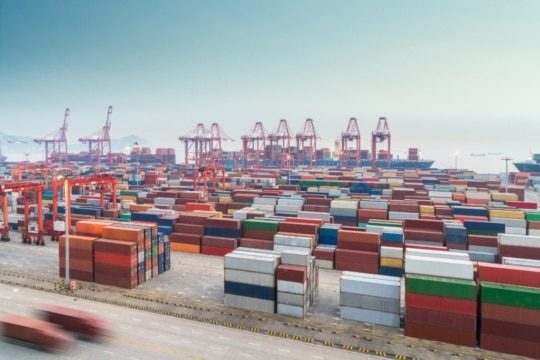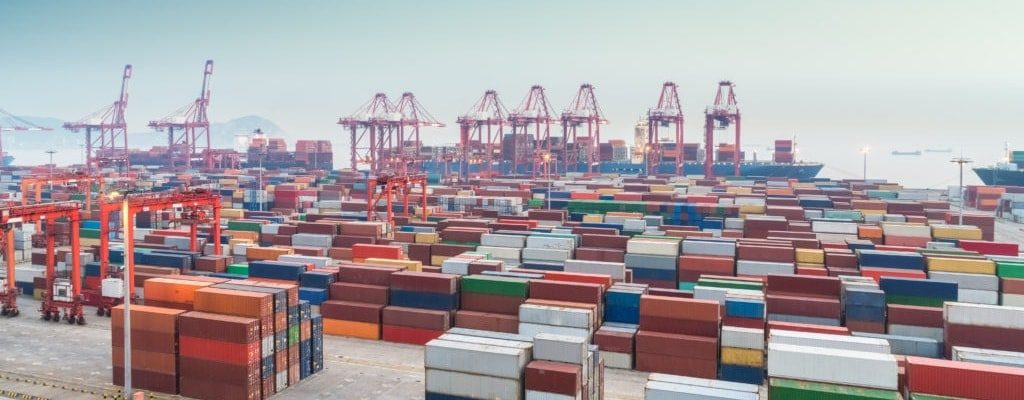Metal Tariffs
New metal tariffs on foreign materials are likely going to affect industries that employ millions of Americans. Beverage and robotics manufacturing are just two of the affected industries, but these two will be among the segment most heavily affected by the new tariffs on imported building materials. The metal tariffs recommended by the U.S. Commerce Department apply to aluminum and steel imported to the US from abroad. The tariffs reach as high as 53%, which could pose a big problem for industries relying on these essential metals for manufacturing purposes.

New tariffs on foreign materials are likely going to affect industries that employ millions of Americans.
The proposed metal tariffs were submitted by Commerce Secretary Wilbur Ross, effectively giving the president three options to choose from as per Ross’ recommendations. The first option is the broadest and most sweeping, in which Ross recommends the president impose tariffs of 24% on all steel and 7.7% on aluminum imports from all countries. The second is far more specific in whose imports are tariffed the hardest, with Ross’ recommended tariffs of 53% on steel imports from 12 countries, including China, Brazil, and Russia, and tariffs of 23.6% on aluminum imports from China, Hong Kong, Russia, Venezuela, and Vietnam. Ross has gone so far as to supplement these tariffs alongside quotas. Finally, the third option Ross has laid out will impose a quota on steel and aluminum imports from all regions, which will limit countries to 63% of the steel and 86.7% of the aluminum that each had shipped to the United States last year.
The Fear Following Metal Tariffs
While it is surmised that these metal tariffs will prompt a reinvestment into the US metals manufacturing sector, some experts believe the shift could earn the ire of many US trading partners. What if, as some economics and trade experts argue, China decides to place tariffs on US semiconductors or India on food imports from the US? Retaliation is the biggest fear according to these specialists beyond the notion that the tariffs will upset the current climate of international trade. Not to mention, most of the US metals importuning comes from valued trading partners and allies not targeted specifically by Ross’ proposed tariffs, like Canada.
US Metal Manufacturing
In the last 18 years, nearly the same number of aluminum smelters have closed their facility doors in the US. Currently, there are only two aluminum smelters running at capacity, with three others in the US operating at partial capacity. On the other hand, steel has enjoyed a bit of a bounce back. Market leaders in metals, like Alcoa and Nucor, are optimistic at the possible shit as it will likely inject US metals manufacturing with some desperately needed vigor. Share prices of US steel and aluminum smelters have surged following the announcement of the proposed tariffs. However, the rally may be premature if the president decides to explore an alternative route in addressing the undermining of domestic metals production.
Nevertheless, Alcoa has announced plans to restart a smelter in southern Indiana by mid-2018. Southeast Missouri may find one if its dormant smelters resurrected, pending negotiations of an electrical supply contract with local utility company Ameren Missouri. While the news for metals manufacturers leaves room for optimism, the state of metals manufacturing has been sorely outpaced by producers like China, which operate many modern facilities that make the processes cost effective. Without significant modernization efforts on top of the revitalization of metals manufacturing in the US, the long-term efficacy of these efforts remains to be seen.
The State Of US Robotics In The Face Of Metal Tariffs
When it comes to the robotics manufacturing industry, the US is a global leader in the field. Innovating creations in every sector from defense and medical applications to the automated manufacturing of confections, the state of robotics has never been more fruitful for the US. However, robotics is an industry that relies heavily on the supply of steel and aluminum as the two metals make up the bulk of manufacturing materials in building robots and robotic components.
The tariffs could significantly increase the costs of innovation at while production gains momentum among competitors abroad. Elsewhere in the world, US competitors in robotics will likely continue to make headway and possibly outpace the US manufacturers forced to adapt to a much different landscape when it comes to materials availability. The imposing of tariffs could additionally upset last year’s optimistic forecast that the metal fabrication robotics market is set to grow at a compound annual growth rate (CAGR) of 18.5% over the next three years.
How Brewers And Canners Are Affected By Metal Tariffs
Breweries and canned food companies are two more industries that are expected to be affected by the move, as they rely heavily on imported metals for the packaging of their products. The resulting tariffs, if accepted will not only raise the prices of canned goods but could significantly increase the cost of beer should breweries decide to abandon canning altogether and go to the bottle.
The two different packaging systems require entirely different mechanical apparatuses, which cost tens if not hundreds of thousands of dollars to implement operate and maintain for brewers. The result is a more costly six-pack, despite what the container is made of.
About Encompass Solutions
Encompass Solutions is a business and software consulting firm that specializes in ERP systems, EDI, and Managed Services support for Manufacturers and Distributors. Serving small and medium-sized businesses since 2001, Encompass modernizes operations and automates processes for hundreds of customers across the globe. Whether undertaking full-scale implementation, integration, and renovation of existing systems, Encompass provides a specialized approach to every client’s needs. By identifying customer requirements and addressing them with the right solutions, we ensure our clients are equipped to match the pace of Industry.
- 8 Benefits of Quality Management | White Paper | Epicor Kinetic - March 8, 2022
- Epicor Kinetic Announces 1,000th Cloud Customer Milestone - February 14, 2022
- Epicor Financial Planner Product Release January 25, 2022 - January 25, 2022

